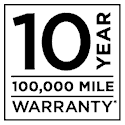It’s getting hot in here, friends. By in here, I mean the Capitol District. Well, it’s getting hot all over the place, but it has really been heating up around here in particular. I know that I am all but melting in this weather. I wasn’t built for the heat, I was built for fall or spring weather. So if my car is anything like I am, it too is feeling the effects of the extreme heat. If you’ve ever had the misfortune of stepping on hot pavement barefooted, you know what your tires are dealing with on the daily. As such, your tires are going to be the most likely candidates to experience issues.
A shift in tire pressure is one of the most common issues that come with the change of temperature. Keeping an eye on the pressure is always a good idea, but particularly in the summer. You can expect the pressure in your tires will go up approximately 1lb for every 10 degrees Fahrenheit. If your tire is overinflated, there is a higher likelihood that your tire will blowout. If not completely blow out, you’ll definitely wear out the tires more quickly. A tire that is over inflated shows more wear along the center width of the tire than along its edges. When your tires develop uneven tread wear it could lead to those sneaky slow leaks showing up and the shortening of the overall life expectancy of your tire.

In addition to fluctuating tire pressure, tires can fail when there is increased friction, high-speed driving, excessive cornering and frequent braking. During periods of very high temperatures, these things can cause the tire to heat up beyond their design ratings and lead to a blowout.
Now, I know that all tires are created differently which means that they all have separate ratings for temperature, tread wear, load capability, and speed. Basically just take the time to get to know what those limits are so that you can avoid a tire blow out. Another way to possibly avoid a blowout is by making sure your tires are properly inflated. When your tires are under-inflated they are likely to get hotter easier than if they were inflated properly. In addition, under-inflated tires will result in poor gas mileage. You can reduce the risk of blowouts by slowing down on the highway and taking curves or corners more gently. Excessive heat can cause badly worn or old tires to fail even in careful driving.
So what have we learned here? In heat this extreme, take it slow out there on the road, it’s better to be safe than sorry. To be extra protected keep track of your tire pressure. I recommend keeping a tire pressure gauge in your car at all times. There are 3 kinds to choose from: Digital, Stick, and Dial. I prefer the dial tire pressure gauge so I don’t have to worry about technological malfunction, but everyone has their own preference. If you do find yourself with a tire blowout, you can stop by Destination Kia and we will be more than happy to replace your tire and check to make sure your other tires are in good shape. Drive safe, and stay cool!


![[Facebook]](https://www.destinationkia.com/blogs/1016/wp-content/plugins/bookmarkify/facebook.png)
![[LinkedIn]](https://www.destinationkia.com/blogs/1016/wp-content/plugins/bookmarkify/linkedin.png)
![[Twitter]](https://www.destinationkia.com/blogs/1016/wp-content/plugins/bookmarkify/twitter.png)
![[Yahoo!]](https://www.destinationkia.com/blogs/1016/wp-content/plugins/bookmarkify/yahoo.png)
![[Email]](https://www.destinationkia.com/blogs/1016/wp-content/plugins/bookmarkify/email.png)


 Warranties include 10-year/100,000-mile powertrain and 5-year/60,000-mile basic. All warranties and roadside assistance are limited. See retailer for warranty details.
Warranties include 10-year/100,000-mile powertrain and 5-year/60,000-mile basic. All warranties and roadside assistance are limited. See retailer for warranty details.